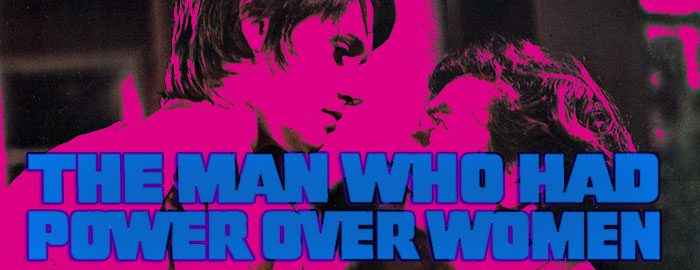

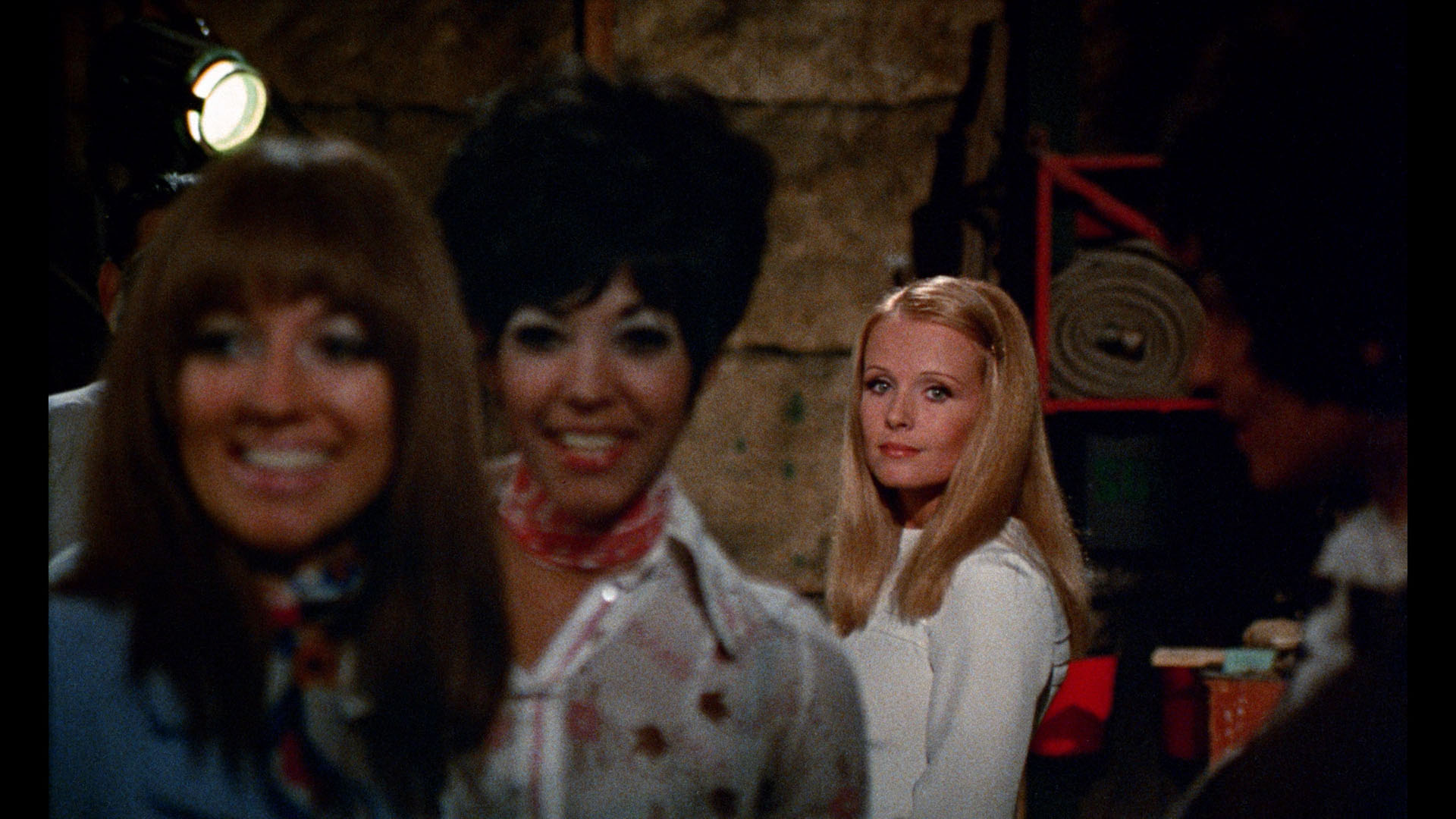 typical British '70s sex farce or a sci-fi mind control film, The Man Who Had Power Over Women seems to lacing at least a moderate amount of
typical British '70s sex farce or a sci-fi mind control film, The Man Who Had Power Over Women seems to lacing at least a moderate amount of 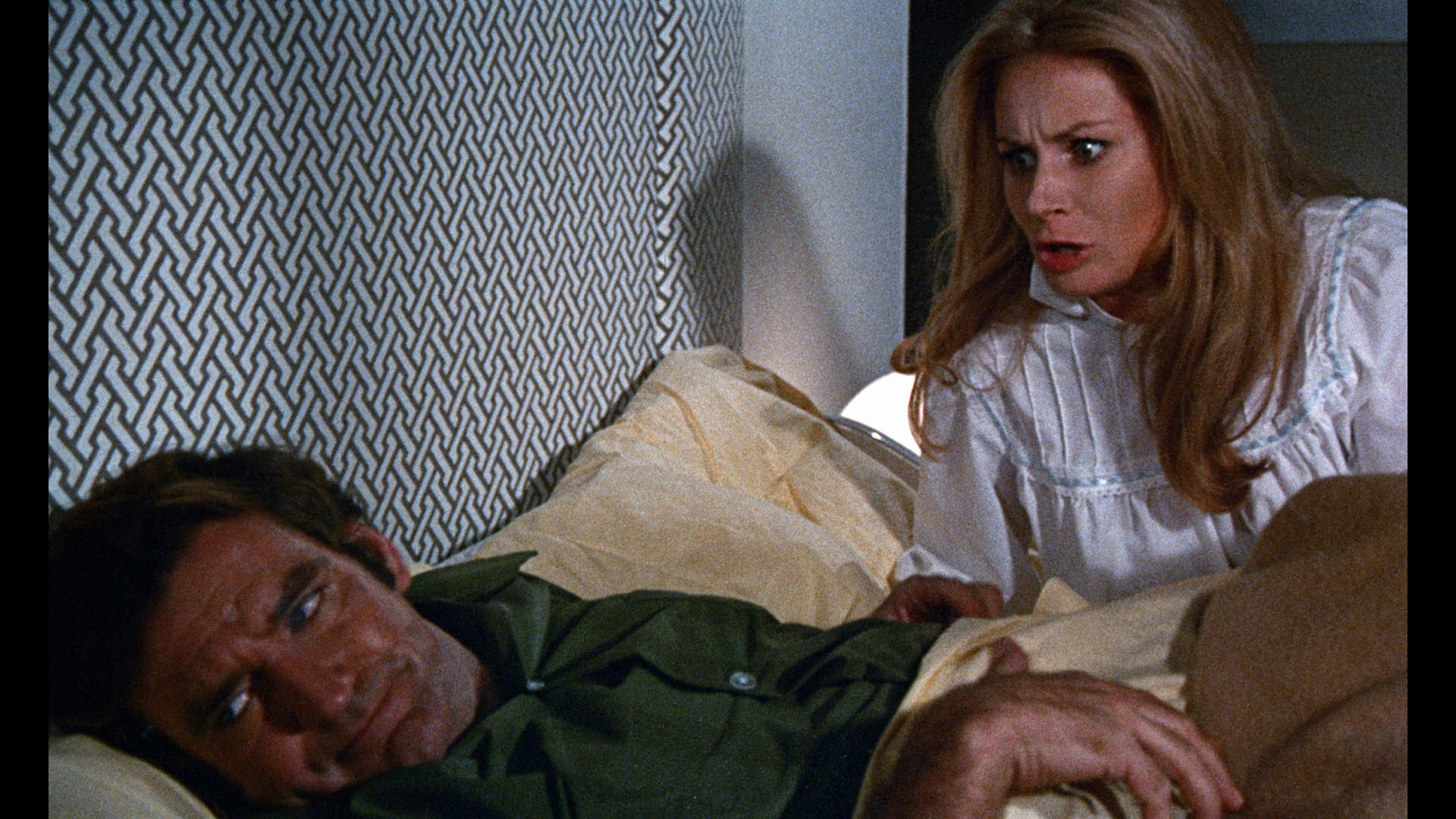 irony into its depiction of two male friends grappling with work and sex while manipulating each other for good measure. A troubled production and definitely not the comedy it's usually classified as in movie guides, the film was originally going to be helmed by Silvio Narizzano (Georgy Girl), who left just before shooting to do Loot instead; the reins then fell to director John Krish, who had done Captured, several TV episodes and Children's Film Foundation productions but was most likely hired due to his 1968 counterculture satire, Decline and Fall... of a Birdwatcher. Both of these Krish films have appeared off and on via television broadcasts over the years, with video releases around for the really dedicated if they felt so inclined. The 2023 Indicator Blu-ray of The Man Who Had Power Over Women marks a first for the label as it's availably only directly from the label and not via any other retailer; it's also an excellent crash course in the career of Krish, an interesting figure through several phases of British movie and TV production.
irony into its depiction of two male friends grappling with work and sex while manipulating each other for good measure. A troubled production and definitely not the comedy it's usually classified as in movie guides, the film was originally going to be helmed by Silvio Narizzano (Georgy Girl), who left just before shooting to do Loot instead; the reins then fell to director John Krish, who had done Captured, several TV episodes and Children's Film Foundation productions but was most likely hired due to his 1968 counterculture satire, Decline and Fall... of a Birdwatcher. Both of these Krish films have appeared off and on via television broadcasts over the years, with video releases around for the really dedicated if they felt so inclined. The 2023 Indicator Blu-ray of The Man Who Had Power Over Women marks a first for the label as it's availably only directly from the label and not via any other retailer; it's also an excellent crash course in the career of Krish, an interesting figure through several phases of British movie and TV production. 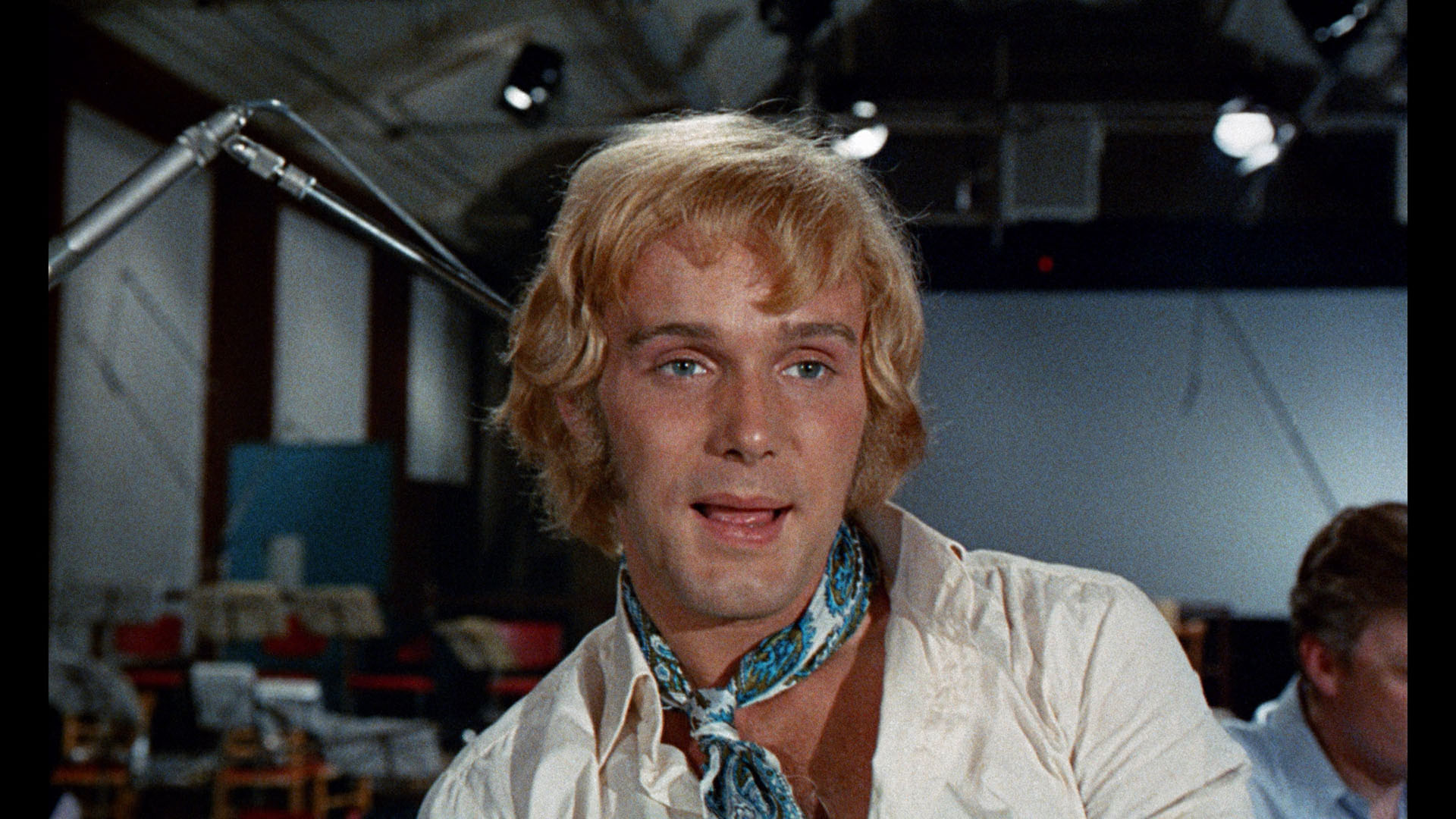 women becomes especially stark when he gets one young fan pregnant. Peter's situation becomes even more complicated when he finally breaks off
women becomes especially stark when he gets one young fan pregnant. Peter's situation becomes even more complicated when he finally breaks off 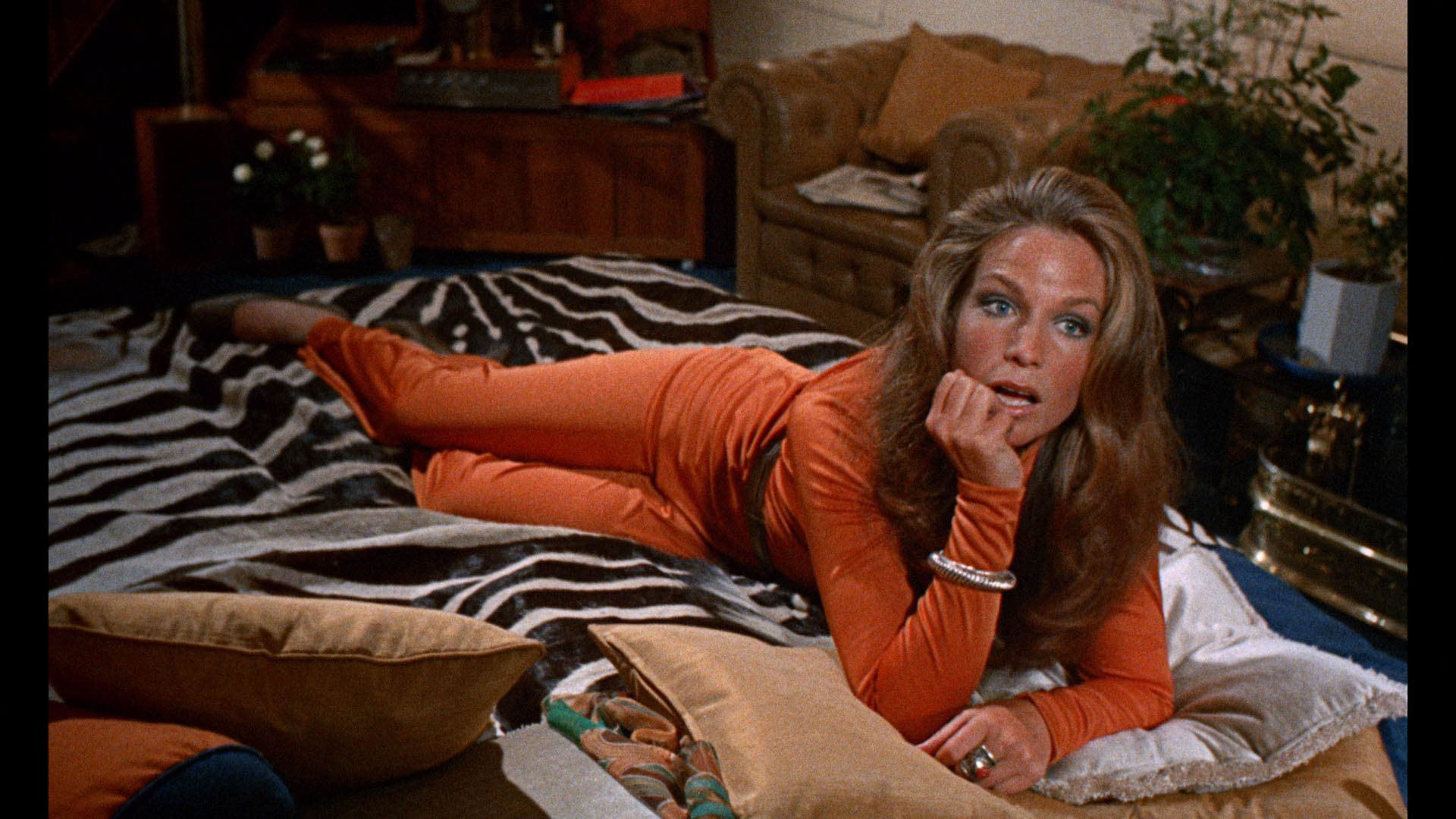 his marriage for good and, seemingly endorsed to some extent by both of the spouses, starts an affair with Val. Can this total train wreck of a human being eventually get it together, and who else will be taken out in the process?
his marriage for good and, seemingly endorsed to some extent by both of the spouses, starts an affair with Val. Can this total train wreck of a human being eventually get it together, and who else will be taken out in the process?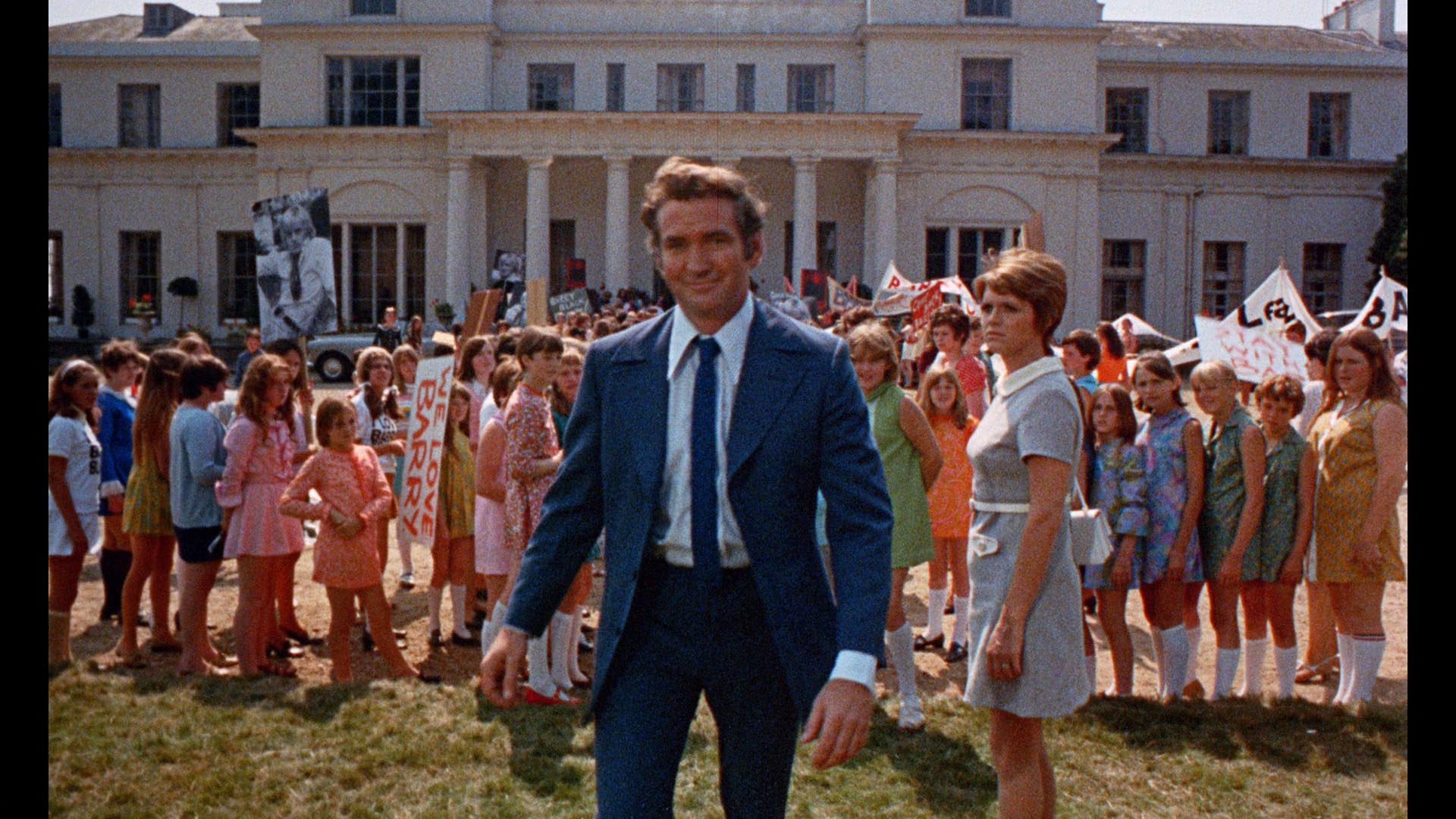 those wild costumes in their semi-psychedelic glory. It looks a lot like those striking, blazing HD restorations done by Sony for films from this era,
those wild costumes in their semi-psychedelic glory. It looks a lot like those striking, blazing HD restorations done by Sony for films from this era, 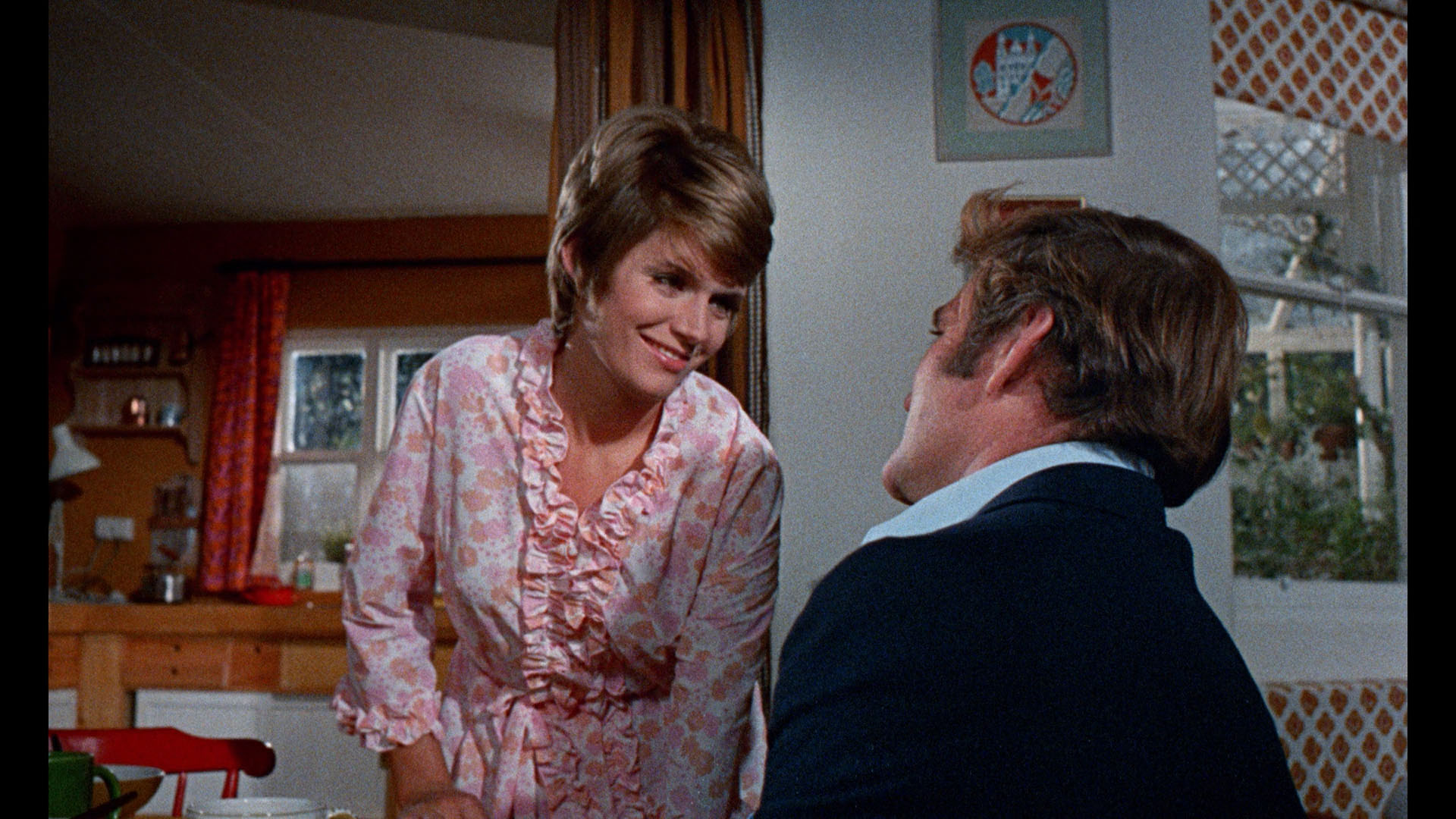 which is a good thing. The LPCM English 1.0 mono track is also in perfect shape, with "new and improved" English SDH subtitles provided (presumably improving on broadcast TV captions). "The BEHP Interview with John Krish" is an archival audio recording of the director in conversation with Rodney Giesler, made as part of the British Entertainment History Project fusing together conversations in 1994 (two different sessions) and 2004. There's a ton of material here running as a track under the entire film, starting with the director's unhappy childhood in wartime and attraction to the art before moving through his various gigs in the entertainment industry on his way up to becoming a feature director. In "A Bad Marriage" (10m29s), screenwriter Allan Scott (Don't Look Now) looks back at the process of creating the script with writing partner Chris Bryant and explains the extensive changes implemented on the film (via Krish mandated by American producer Judd Bernard) that caused the pair to remove their names from the final product. He also notes his confusion over the film's title, feeling it should have reflected the marital fractures instead. Krish's earlier work is represented with two short film starting with 1956's Break-In (43m41s), an educational film for the British Army depicting the training process for the military police (with a very young Jim Dale in what might be his debut). Shot in moody black-and-white, it's structured as a crime procedural and showcases the economical narrative style that would make the director valuable in television. 1961's Let My People Go (23m35s) is a fascinating, very ahead of its time look at Apartheid in South Africa, essentially using a cinematic scalpel to lay out how the supposedly neighborly system was in fact a racist, brutal atrocity. A 21-image gallery of posters and stills is also included, while the package comes with the usual packed 40-page booklet featuring a new essay by Vic Pratt, archival interviews with Taylor and Krish, new pieces about both shorts, and film credits.
which is a good thing. The LPCM English 1.0 mono track is also in perfect shape, with "new and improved" English SDH subtitles provided (presumably improving on broadcast TV captions). "The BEHP Interview with John Krish" is an archival audio recording of the director in conversation with Rodney Giesler, made as part of the British Entertainment History Project fusing together conversations in 1994 (two different sessions) and 2004. There's a ton of material here running as a track under the entire film, starting with the director's unhappy childhood in wartime and attraction to the art before moving through his various gigs in the entertainment industry on his way up to becoming a feature director. In "A Bad Marriage" (10m29s), screenwriter Allan Scott (Don't Look Now) looks back at the process of creating the script with writing partner Chris Bryant and explains the extensive changes implemented on the film (via Krish mandated by American producer Judd Bernard) that caused the pair to remove their names from the final product. He also notes his confusion over the film's title, feeling it should have reflected the marital fractures instead. Krish's earlier work is represented with two short film starting with 1956's Break-In (43m41s), an educational film for the British Army depicting the training process for the military police (with a very young Jim Dale in what might be his debut). Shot in moody black-and-white, it's structured as a crime procedural and showcases the economical narrative style that would make the director valuable in television. 1961's Let My People Go (23m35s) is a fascinating, very ahead of its time look at Apartheid in South Africa, essentially using a cinematic scalpel to lay out how the supposedly neighborly system was in fact a racist, brutal atrocity. A 21-image gallery of posters and stills is also included, while the package comes with the usual packed 40-page booklet featuring a new essay by Vic Pratt, archival interviews with Taylor and Krish, new pieces about both shorts, and film credits. ![]()